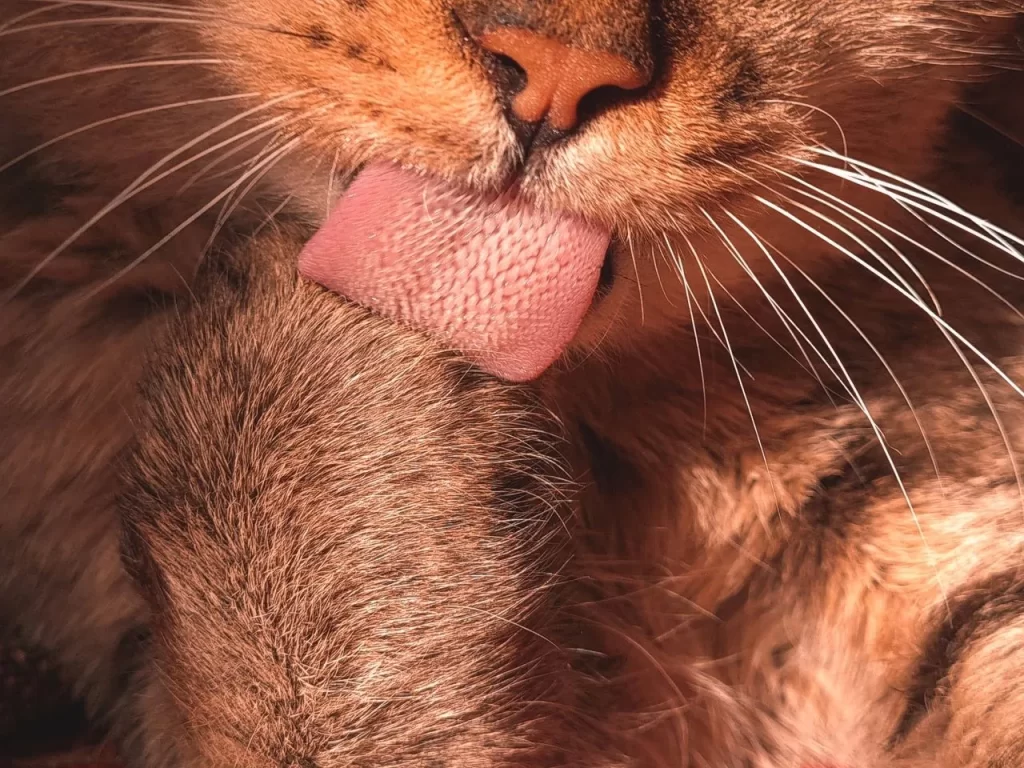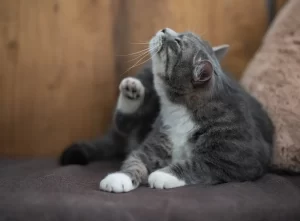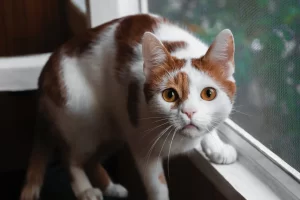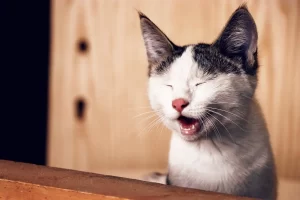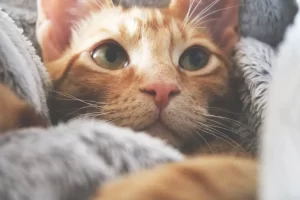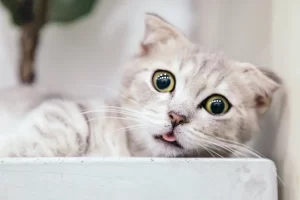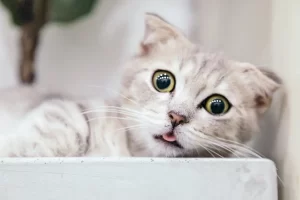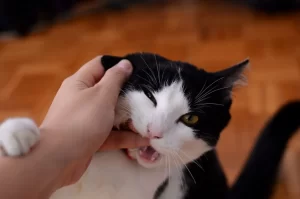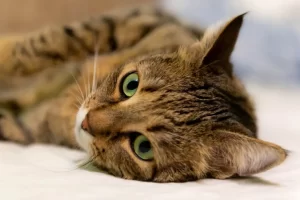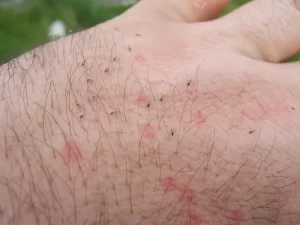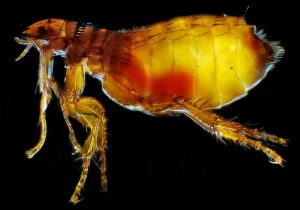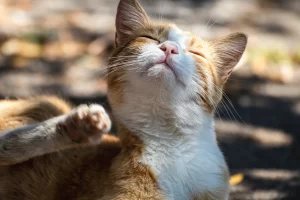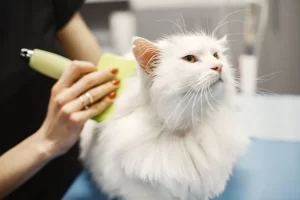If you are a cat owner, you may have noticed that your feline friend has been pulling out its hair. This can be a distressing sight and may cause you to worry about your cat’s health and well-being. Fortunately, there are various home remedies for cat pulling hair out that you can try to alleviate this issue. In this article, we will discuss the possible causes of hair loss in cats and offer natural solutions that you can implement at home to prevent your cat from pulling out its hair. By using these home remedies, you can help your cat maintain healthy and lustrous fur and avoid any potential complications that may arise if the issue is left untreated.
Table of Contents
ToggleUnderstanding Hair Loss in Cats
Cats pulling out their hair is a common problem that can occur for various reasons. This condition, also known as feline alopecia, can be a sign of an underlying medical condition, skin irritation, or behavioral issues. Symptoms of hair pulling in cats can range from thinning hair to bald patches on the skin. Left untreated, hair pulling in cats can lead to skin infections, further hair loss, and even psychological distress. Therefore, it is important to identify the root cause of the problem and seek appropriate treatment as soon as possible.
Causes of Cat Hair Loss: Exploring the Possibilities
There are many potential causes of cats pulling out their hair, and identifying the root cause is key to finding an effective treatment. Here are some of the most common causes of hair-pulling in cats:
- Stress and anxiety: Cats can experience stress and anxiety from a variety of sources, such as changes in their environment, lack of socialization, or conflicts with other pets in the household. This can lead to over-grooming and hair-pulling.
- Allergies: Allergies to food, fleas, or environmental allergens can cause intense itching and irritation, leading to excessive grooming and hair loss.
- Parasites: Fleas, mites, and lice can all cause skin irritation and itching, leading to hair loss in cats. See What Fleas Can Do to Cats and Kittens.
- Infections: Bacterial, fungal, or yeast infections (read more about cat yeast infection and associated home treatments here) can cause skin irritation and hair loss in cats.
- Hormonal imbalances: Disorders of the endocrine system, such as hyperthyroidism or Cushing’s disease, can cause hair loss in cats. If your cat is diagnosed with hyperthyroidism, its symptoms might be relieved by taking advantage of these home remedies.
- Nutritional deficiencies: A lack of certain vitamins and minerals in a cat’s diet can lead to poor coat health and hair loss.
- Behavioral issues: Cats may pull out their hair due to boredom, frustration, or compulsive behavior.
- Physical trauma: Injury or trauma to the skin, such as from excessive scratching, can lead to hair loss in cats.
Keep in mind that these potential causes are not mutually exclusive, and a cat may have more than one contributing factor to their hair-pulling. Therefore, a thorough evaluation by a veterinarian is essential to properly diagnose the underlying cause of the hair pulling.
Medical Causes of Cat Hair Loss: Understanding Underlying Conditions
Underlying medical conditions can be a common cause of hair pulling in cats. Here are some medical conditions that can cause hair loss in cats:
- Dermatitis: Dermatitis is a general term used to describe inflammation of the skin. It can be caused by a variety of factors, such as allergies, infections, or parasites, and can lead to hair loss.
- Flea allergy dermatitis: Flea allergy dermatitis is an allergic reaction to flea saliva that can cause intense itching and hair loss in cats. Even a small number of fleas can trigger this condition.
- Ringworm: Ringworm is a fungal infection that can affect the skin, hair, and nails of cats. It can cause hair loss, redness, and scaly patches on the skin. Checkout these items that can help treat and prevent ringworms in cats.
- Mange: Mange is a skin condition caused by mites that burrow into the skin and can cause severe itching and hair loss. There are two types of mange that can affect cats: demodectic mange and sarcoptic mange. Mange in cats can often be treated, managed, and prevented at home using natural and home remedies.
- Fungal infections: Fungal infections such as Malassezia can cause hair loss, scaly skin, and itchiness in cats.
- Alopecia areata: Alopecia areata is an autoimmune disorder that can cause hair loss in cats. It occurs when the immune system mistakenly attacks the hair follicles.
Natural Remedies for Parasites in Cats: Preventing Hair Loss Caused by Fleas, Lice, and Mites
Parasites, such as fleas, lice, and mites, can cause skin irritation and hair loss in cats. Here are some natural remedies to help deal with these parasites:
- Fleas: Fleas are a common cause of hair loss in cats. To treat fleas naturally, you can use a flea comb (something like this) to remove fleas from your cat’s coat, and sprinkle diatomaceous earth (here is a sample that is food grade) on your cat’s bedding and other areas where your cat spends time. Diatomaceous earth is a natural powder made from fossilized algae that can kill fleas by dehydrating them. Additionally, you can use herbal flea collars or essential oils, such as lavender, lemon, or peppermint, to repel fleas (For essential oils make sure they are high quality and suitable for tropical use, see an example here). However, it is important to use essential oils with caution as they can be toxic to cats in large doses. Check out our recent article on the most effective natural and home remedies to get rid of fleas on cats.
- Lice: Lice infestations in cats are rare, but they can occur. To treat lice naturally, you can use a fine-toothed comb to remove lice from your cat’s coat and apply a mixture of apple cider vinegar and water to your cat’s fur. The acidity of apple cider vinegar can help kill lice and soothe your cat’s irritated skin.
- Mites: Mites can cause mange, which is a condition that can lead to severe itching and hair loss in cats. To treat mites naturally, you can apply a mixture of pet-friendly neem oil and coconut oil to your cat’s skin. Neem oil is a natural insecticide and antimicrobial agent that can help kill mites and soothe your cat’s skin. Additionally, you can add a few drops of tea tree oil to your cat’s shampoo to help repel mites.
Note that while natural remedies can be effective for treating parasites, they may not be enough to fully eliminate an infestation. In some cases, prescription medications may be necessary to effectively treat parasites and prevent hair loss in cats.
Managing Cat Hair Loss Due to Allergies with Natural Remedies
Allergies are a common cause of hair loss in cats. Allergies can be caused by a variety of factors, including food, environmental allergens, and flea saliva. Here are some natural remedies to help reduce or eliminate allergies in cats:
- Food allergies: Food allergies can cause itching and hair loss in cats. To determine if your cat has a food allergy, you can switch your cat’s diet to a novel protein diet, such as rabbit or venison, for several weeks. If your cat’s hair loss improves, it may be due to a food allergy. Additionally, you can add supplements, such as pet-friendly omega-3 fatty acids, to your cat’s diet to help reduce inflammation and improve skin health.
- Environmental allergens: Environmental allergens, such as pollen, mold, and dust, can cause itching and hair loss in cats. To reduce your cat’s exposure to environmental allergens, you can use a high-efficiency particulate air (HEPA) filter in your home, vacuum frequently, and wash your cat’s bedding regularly. Additionally, you can use herbal remedies, such as nettle leaf, chamomile (you can buy the organic version from Amazon), or licorice root, to help reduce inflammation and soothe your cat’s skin.
- Flea allergy dermatitis: Flea allergy dermatitis is an allergic reaction to flea saliva that can cause intense itching and hair loss in cats. To treat flea allergy dermatitis naturally, you can use a flea comb to remove fleas from your cat’s coat, and sprinkle diatomaceous earth (food grade) on your cat’s bedding and other areas where your cat spends time. Additionally, you can use herbal flea collars or essential oils, such as lavender, lemon, or peppermint, to repel fleas. If you are not sure if your cat has fleas or not, checkout our post on what fleas look like to the human eye or our other article on how to know if your cat has fleas or not.
Managing stress-related hair loss in cats with natural remedies
Stress and anxiety are common causes of hair loss in cats. Cats can become stressed due to changes in their environment, such as moving to a new home, the introduction of a new pet or family member, or changes in their routine. Here are some natural remedies that can help reduce stress and anxiety in cats. For a full list of natural remedies that can help cats with anxiety, click here.
- Pheromone therapy: Pheromone therapy involves the use of synthetic pheromones that mimic the pheromones produced by cats. These pheromones can help reduce stress and anxiety in cats and promote relaxation. You can use pheromone diffusers, sprays, or collars to provide a calming environment for your cat.
- Aromatherapy: Aromatherapy involves the use of essential oils to promote relaxation and reduce stress. You can use essential oils, such as lavender or chamomile, in an essential oil diffuser or add a few drops to your cat’s bedding to help promote relaxation. It is important to note that not all essential oils are safe for cats, so it is important to consult with your veterinarian before using any essential oils.
- Environmental enrichment: Providing your cat with a stimulating environment can help reduce stress and anxiety. You can provide your cat with toys, scratching posts, and perches to help keep them occupied and reduce stress.
Natural Home Remedies for Cat Hair Loss Prevention
Here are 10 home remedies that can help prevent hair loss in cats:
- Bathing: Regular bathing can help remove loose hair and debris from your cat’s coat, promoting healthy skin and preventing hair loss. Use a gentle shampoo specifically formulated for cats.
- Grooming: Brushing your cat’s coat regularly can help remove loose hair, tangles, and mats, promoting healthy skin and preventing hair loss.
- Diet: Feeding your cat a well-balanced diet with high-quality protein and essential fatty acids can help improve skin and coat health and prevent hair loss. Consult with your veterinarian to determine the best diet for your cat.
- Supplements: Omega-3 fatty acids, biotin, and vitamin E are supplements that can help improve skin and coat health and prevent hair loss in cats. Consult with your veterinarian before adding any supplements to your cat’s diet.
- Apple Cider Vinegar: Applying a mixture of apple cider vinegar and water to your cat’s coat can help prevent hair loss caused by allergies or skin irritation.
- Coconut Oil: Applying coconut oil to your cat’s coat can help moisturize and soothe dry or irritated skin, preventing hair loss.
- Aloe Vera: Aloe vera gel can help soothe and moisturize your cat’s skin, preventing hair loss. Apply the gel to your cat’s coat and massage it in gently. Make sure it is high quality, unscented and organic.
- Witch Hazel: Applying witch hazel to your cat’s skin can help reduce inflammation and prevent hair loss caused by allergies or skin irritation.
- Chamomile Tea: Soaking a chamomile tea bag in warm water and using it to rinse your cat’s coat can help soothe itchy skin and prevent hair loss.
- Epsom Salt: Adding epsom salt to your cat’s bath water can help soothe and moisturize dry or irritated skin, preventing hair loss.
Aromatherapy for Cats: Using Essential Oils to Manage Stress and Promote Healthy Coat
Using essential oils to help alleviate stress and anxiety in cats and prevent hair loss can be an effective natural remedy. However, it’s important to use essential oils with caution as cats are sensitive to many essential oils and some oils can be toxic to cats. Always dilute essential oils properly and never apply them directly to your cat’s skin. Here are some essential oils that can be used safely and effectively to help reduce stress and anxiety in cats and prevent hair loss:
- Lavender: Lavender oil is a well-known natural remedy for stress and anxiety in humans and can also be effective for cats. To use lavender oil, dilute 1-2 drops of lavender oil in a carrier oil such as coconut oil or olive oil and apply it to your cat’s bedding or a diffuser in a well-ventilated room.
- Chamomile: Chamomile oil is also effective for reducing stress and anxiety in cats. Dilute 1-2 drops of chamomile oil in a carrier oil and apply it to your cat’s bedding or a diffuser in a well-ventilated room.
- Valerian Root: Valerian root oil has a sedative effect on cats and can be helpful for reducing stress and anxiety. Dilute 1-2 drops of valerian root oil in a carrier oil and apply it to your cat’s bedding or a diffuser in a well-ventilated room.
- Frankincense: Frankincense oil has a calming effect on cats and can be helpful for reducing stress and anxiety. Dilute 1-2 drops of frankincense oil in a carrier oil and apply it to your cat’s bedding or a diffuser in a well-ventilated room.
- Bergamot: Bergamot oil has a calming effect on cats and can be helpful for reducing stress and anxiety. Dilute 1-2 drops of bergamot oil in a carrier oil and apply it to your cat’s bedding or a diffuser in a well-ventilated room.
- Cedarwood: Cedarwood oil has a calming effect on cats and can be helpful for reducing stress and anxiety. Dilute 1-2 drops of cedarwood oil in a carrier oil and apply it to your cat’s bedding or a diffuser in a well-ventilated room.
When using essential oils with cats, always monitor your cat for any adverse reactions such as lethargy, vomiting, or diarrhea. If your cat shows any signs of distress, discontinue use of the essential oil immediately.
When using essential oils, always make sure the oil is high-quality and organic. Some possible choices are Lavender oil, chamomile oil, Valerian root oil.
CBD Oil for Cats: A Natural Solution to Relieve Stress and Prevent Hair Loss
CBD oil is a popular natural remedy for reducing stress and anxiety in both humans and animals, including cats. CBD stands for cannabidiol, which is a compound found in the cannabis plant. Unlike THC, another compound found in cannabis, CBD is not psychoactive and does not produce a “high” effect.
When it comes to cats, CBD oil can be an effective natural remedy for reducing stress and anxiety, which can help prevent hair loss caused by over-grooming or excessive licking. CBD oil interacts with the endocannabinoid system in the body, which helps to regulate mood, behavior, and other physiological processes.
It’s important to note that not all CBD oils are created equal, and not all are safe for cats. Always choose a high-quality CBD oil that is specifically formulated for pets, and make sure it does not contain any THC or other harmful additives.
When giving your cat CBD oil, it’s important to follow the dosing instructions carefully and start with a low dose to see how your cat responds. It’s also a good idea to consult with your veterinarian before giving your cat CBD oil, especially if your cat is on any medications or has any underlying health conditions.
Overall, CBD oil can be a safe and effective natural remedy for reducing stress and anxiety in cats and preventing hair loss caused by over-grooming. However, it’s important to choose a high-quality product and follow dosing instructions carefully to ensure the safety and effectiveness of the treatment.
Nourishing Your Cat’s Coat: Importance of Diet and Natural Remedies to Prevent Hair Loss
Diet plays an important role in maintaining a healthy coat and preventing hair loss in cats. A diet that is high in essential nutrients can help keep your cat’s coat healthy, shiny, and full. On the other hand, a diet that is lacking in important nutrients can lead to dry, brittle, and thinning hair.
One of the most important nutrients for a healthy coat is omega-3 fatty acids, which can be found in fish oils or flaxseed oil. These fatty acids help to nourish the skin and hair follicles, keeping the coat healthy and shiny. You can add fish oil supplements to your cat’s diet or consider adding fatty fish, such as salmon or mackerel, to their meals.
Another important nutrient for healthy hair is vitamin E. This vitamin helps to promote healthy blood flow and circulation, which can help support healthy hair growth. You can add vitamin E supplements to your cat’s diet or consider feeding them foods that are rich in this nutrient, such as eggs, spinach, and sunflower seeds.
Biotin is another nutrient that is important for healthy hair growth. Biotin is a B vitamin that helps to strengthen hair follicles and prevent breakage. You can add biotin supplements to your cat’s diet or consider feeding them foods that are rich in this nutrient, such as liver, egg yolks, and sweet potatoes.
In addition to adding specific nutrients to your cat’s diet, it’s also important to feed them a high-quality, balanced diet that provides all the essential nutrients they need for overall health and well-being. Look for cat foods that are made with high-quality protein sources, such as chicken or fish, and avoid foods that contain fillers or artificial ingredients.
Overall, a diet that is high in essential nutrients can help prevent hair loss in cats and promote a healthy, shiny coat. Consider adding omega-3 fatty acids, vitamin E, and biotin supplements to your cat’s diet, and feed them a high-quality, balanced diet to ensure they are getting all the nutrients they need.
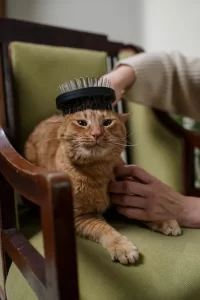
Preventing Cats from Pulling Hair Out: The Importance of Grooming and Effective Techniques
Regular grooming is an important part of maintaining your cat’s coat health and preventing hair loss. Here are some tips for effective grooming practices:
- Brush your cat regularly: Brushing your cat regularly helps to remove loose hair, dirt, and debris from their coat, which can help prevent hair loss. Use a soft-bristled brush or comb and brush in the direction of hair growth.
- Use a mild shampoo: If you need to bathe your cat, use a mild shampoo that is specifically designed for cats. Avoid using human shampoos or harsh soaps, which can dry out your cat’s skin and lead to hair loss.
- Check for fleas and ticks: Fleas and ticks can cause your cat to scratch and pull out their hair. Check your cat regularly for signs of fleas and ticks, and use flea and tick preventives as recommended by your veterinarian.
- Trim your cat’s nails: Long nails can cause your cat to scratch and damage their skin and coat. Regularly trimming your cat’s nails can help prevent this.
- Provide a comfortable grooming environment: Make sure your cat is comfortable and relaxed during grooming. Use treats and positive reinforcement to help them associate grooming with positive experiences.
- Pay attention to changes in your cat’s coat: If you notice any changes in your cat’s coat, such as thinning or bald patches, consult your veterinarian. Hair loss can be a sign of an underlying medical condition, and early detection and treatment are important for a successful outcome.
Environmental Factors and Your Cat’s Hair Health
Environmental factors can play a significant role in the health of your cat’s skin and coat. Here are some ways that different environmental factors can affect your cat:
- Humidity: High humidity can contribute to the growth of fungi and bacteria on your cat’s skin, which can lead to skin irritation and hair loss. On the other hand, low humidity can cause dry skin and hair, which can also lead to hair loss. Maintaining a comfortable level of humidity in your home can help keep your cat’s skin and coat healthy. Use simple and cheap tools like this to constantly monitor your home’s humidity and temperature.
- Temperature: Extreme temperatures, both hot and cold, can stress your cat’s body and lead to hair loss. It’s important to provide your cat with a comfortable environment that is not too hot or cold. In addition, keeping your cat indoors during extreme weather can help prevent exposure to temperature extremes.
- Sunlight: Exposure to sunlight can be beneficial for cats in moderation, as it can help promote healthy skin and coat. However, too much sunlight can lead to sunburn and skin damage, which can cause hair loss. Make sure your cat has access to shade and limit their exposure to direct sunlight, especially during the hottest parts of the day.
- Indoor air quality: Poor indoor air quality can contribute to skin irritation and hair loss in cats. Make sure your home is well-ventilated and free of irritants such as cigarette smoke, dust, and mold.
In summary, environmental factors such as humidity, temperature, sunlight, and indoor air quality can all affect your cat’s skin and hair health. It’s important to provide your cat with a comfortable environment that is not too hot or cold, limit their exposure to direct sunlight, and maintain good indoor air quality.
Managing Stress in Cats: Natural Remedies and Techniques for a Happier Feline
Stress can be a significant factor contributing to hair loss in cats. To help manage stress in cats, here are some ways to provide a comfortable and safe environment, play with toys, and provide regular exercise:
- Comfortable and Safe Environment: Ensure that your cat has a comfortable and safe environment to live in. This means providing a cozy and quiet space for your cat to relax, as well as a safe and secure home that is free from potential stressors such as loud noises or other animals.
- Play with Toys: Playing with your cat can be an excellent way to help them release stress and anxiety. Provide your cat with a variety of toys such as puzzle feeders, wand toys, and scratching posts, and set aside regular playtime each day to interact with your cat.
- Regular Exercise: Regular exercise can help reduce stress and anxiety in cats. Provide your cat with opportunities to exercise, such as climbing trees or using a scratching post, and encourage them to play and move around. This can help reduce stress and anxiety levels, which in turn can help prevent hair loss.
- Catnip: Catnip can be a great way to help cats relax and reduce stress levels. Use it sparingly and ensure your cat has access to it in a safe and controlled environment.
Feline Massage Therapy for Stress Reduction and Hair Loss Prevention
Massage therapy can be a great way to calm your cat and prevent hair loss due to stress and anxiety. Massaging your cat can help to release endorphins, which are natural painkillers that also promote relaxation. Additionally, massage can help to increase blood flow and oxygenation to the skin and hair follicles, which can promote healthy hair growth.
To massage your cat, start by creating a relaxing environment. Choose a quiet room and dim the lights. Place your cat on a comfortable surface, such as a soft blanket or bed. Begin by petting your cat in a slow, gentle manner, paying attention to areas where your cat seems to be tense or stressed.
Next, begin to apply gentle pressure to your cat’s muscles, using slow, circular motions. You can focus on areas such as the neck, shoulders, and back. Be sure to use a light touch and avoid applying too much pressure. If your cat seems uncomfortable or starts to pull away, stop the massage and try again later.
It is important to note that not all cats enjoy massage therapy, and some may find it stressful. Always observe your cat’s body language and listen to their vocalizations to ensure they are comfortable and relaxed during the massage. If your cat seems uncomfortable or stressed, it may be best to try other stress management techniques instead.
Homeopathic Remedies for Cats Pulling Hair Out
Homeopathic remedies, such as Bach Flower Essences, can be used to help calm cats and prevent hair loss due to stress and anxiety. Bach Flower Essences are a type of natural remedy that is made from flower extracts and is believed to work by balancing emotions and promoting emotional well-being.
To use Bach Flower Essences, you can add a few drops to your cat’s water bowl or food, or apply them directly to your cat’s skin or fur. Some common Bach Flower Essences that can be used for stress and anxiety in cats include Rescue Remedy, Aspen, and Mimulus. However, it is important to note that the effectiveness of homeopathic remedies can vary from cat to cat, and some cats may not respond to them at all.
Protecting Your Cat: Avoiding Harsh Chemicals to Prevent Hair Loss
It is crucial to avoid exposing your cat to harsh chemicals that can irritate its skin and potentially cause hair loss. Some flea and tick treatments, for example, can contain chemicals that may cause adverse reactions in cats, including skin irritation and hair loss. It is essential to research any products that you plan to use on your cat and consult with your veterinarian before applying them. Consider using natural alternatives such as essential oils or herbal remedies, which are often gentler on your cat’s skin and can be just as effective in preventing fleas and ticks. By avoiding harsh chemicals, you can help keep your cat’s skin and coat healthy and prevent unnecessary hair loss.
Complications of Untreated Cats Pulling Hair Out: What You Need to Know
Untreated hair loss in cats can lead to various complications, including skin infections, hot spots, and even emotional distress. When a cat pulls out its hair, it can create open wounds on the skin that are vulnerable to bacterial and fungal infections. These infections can cause severe itching, redness, and inflammation (check out natural antibiotics for cat wounds). In addition, hair loss can create hot spots on the skin, which are painful and uncomfortable for your cat. Finally, if the underlying cause of hair loss is stress or anxiety, leaving it untreated can lead to long-term emotional distress and behavioral problems in your cat. Therefore, it is important to address any hair loss in your cat promptly and seek veterinary care if necessary.

